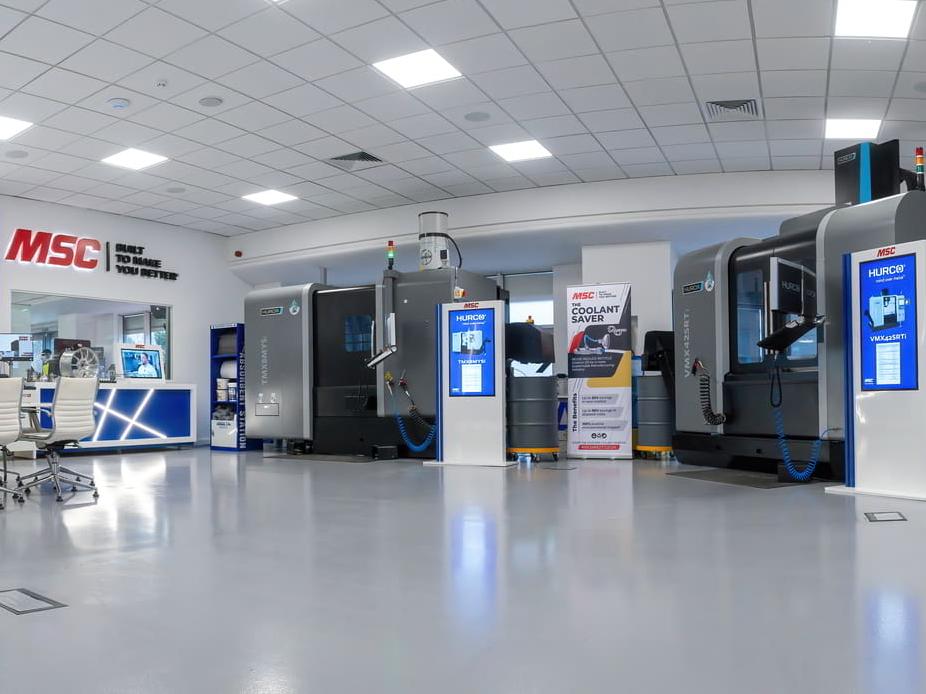Continuous improvement positions aerospace supplier for take-off post pandemic

The UK aerospace sector has experienced unprecedented challenges as a result of the global pandemic; challenges that have affected engineering firms at every level of the supply chain.
Fortunately for one leader in its field, the investment in a continuous improvement programme pre-pandemic has coincided with the requirement for increased efficiencies and reduced cost per part that are now necessitated by an industry battling for recovery.
Such is the success of the programme that it has not only ensured the company is better positioned to weather the current storm, but has also created new business opportunities thanks to more competitive processes and the implementation of advanced technology.
James Kirk, director of operations at Erodex UK, one of the UK's leading suppliers of EDM graphite, graphite machining and tooling to the aerospace market, joined the company in 2019 to spearhead the continuous improvement drive.
“We are in an environment now in aerospace where cost per part is becoming even more critical than it was two years ago,” he says. “More than ever, we are required to find more efficient ways of producing and must therefore embrace a strategic commitment to improvement and change.
“This is far easier to achieve in a business that isn’t performing. It is much more difficult to come into a company like Erodex, a market leader that was profitable and had been growing year on year and say ‘we need to improve’.”
However, that is what Mr Kirk, working alongside fellow directors and owners Steve, Ian and John Rolinson, set about doing at their Graphite Machining Facility in Wednesbury, West Midlands.
“Initially we set about understanding what the true performance of the facility was. We identified potential to improve delivery adherence and then needed to understand what the drivers were behind that; performance, capacity, efficiencies, or a combination of all three? It became quite clear that there was scope to improve workflow and machining efficiencies.”
Focusing on the priority areas of improving the efficiency, aesthetics and workflow of the shopfloor, a continuous improvement roadmap was agreed between the directors that gave Mr Kirk a wide scope on investment moving forward.
Basic but quick wins closed out in the first year included improving the layout of the factory, de-cluttering and implementing cellular environments for grinding and machining. This created a far more lean and efficient production environment that complemented other fundamental improvements such as whiteboards and daily team meetings.
Mr Kirk adds: “After a period of evaluation, we focused on encouraging our people towards embracing change and wanting to be part of the journey, ensuring that we had the right mindset and philosophy in place.

“We tried to show them that by changing, they will make it both easier for themselves and better for the business. For example, by raising the level of inspection, improving the workflow so material is always ready in advance for the machinist to start their next job, and ensuring tooling has been checked. These improvements may be basic, but they act as a springboard for more significant strategies further down the line.”
Driving down costs in existing programs through a ‘one operator, three machines’ philosophy of multitasking and re-assigning roles and responsibilities laid the foundation for investment in new machinery and exploring new processes.
“We’re at the more technical end of the roadmap now; drilling down part by part into high value runners and repeaters,” Mr Kirk explains. “If you look at what we’ve done on one of our highest value lines, we’ve driven in some significant savings into our products. This in turn enables us to pass such savings back through the supply chain. We are now developing new techniques and are looking at robotics for high volume products.
“We’ve started asking questions like ‘how can we take that part that we’ve machined in a 3-axis orientation and machine it in a 5-axis configuration – and what does that do to our cost per part’?
“Investing in and maximising the capability of different machinery such as 5-axis also opens us up to new products and industries going forward. As well as pushing ourselves towards growth in new areas, there are also aspects of electrode manufacture in aerospace that we’ve not been able to undertake in the past – mainly for technological reason – that we can now.”
The company believes the £1.75 million programme of expansion will ensure that it is best placed to capitalise on the expected economic upturn throughout 2021 and beyond. Investment in new machinery has seen capacity at the site increase by 40%.
Erodex has already seen the benefit of its newly acquired machinery, having secured a contract for a part that previously couldn’t be manufactured competitively within the first two weeks of having the machine onsite.
This is combined with investment in a growing team that has bought into the vision of where Mr Kirk and the Erodex directors are taking the business. “We’re investing in our people and progressing young talent,” he concludes. “Ultimately for me, you get a more proactive response if you have a dynamic mix of expertise within your workforce.”
Erodex
www.erodex.com















